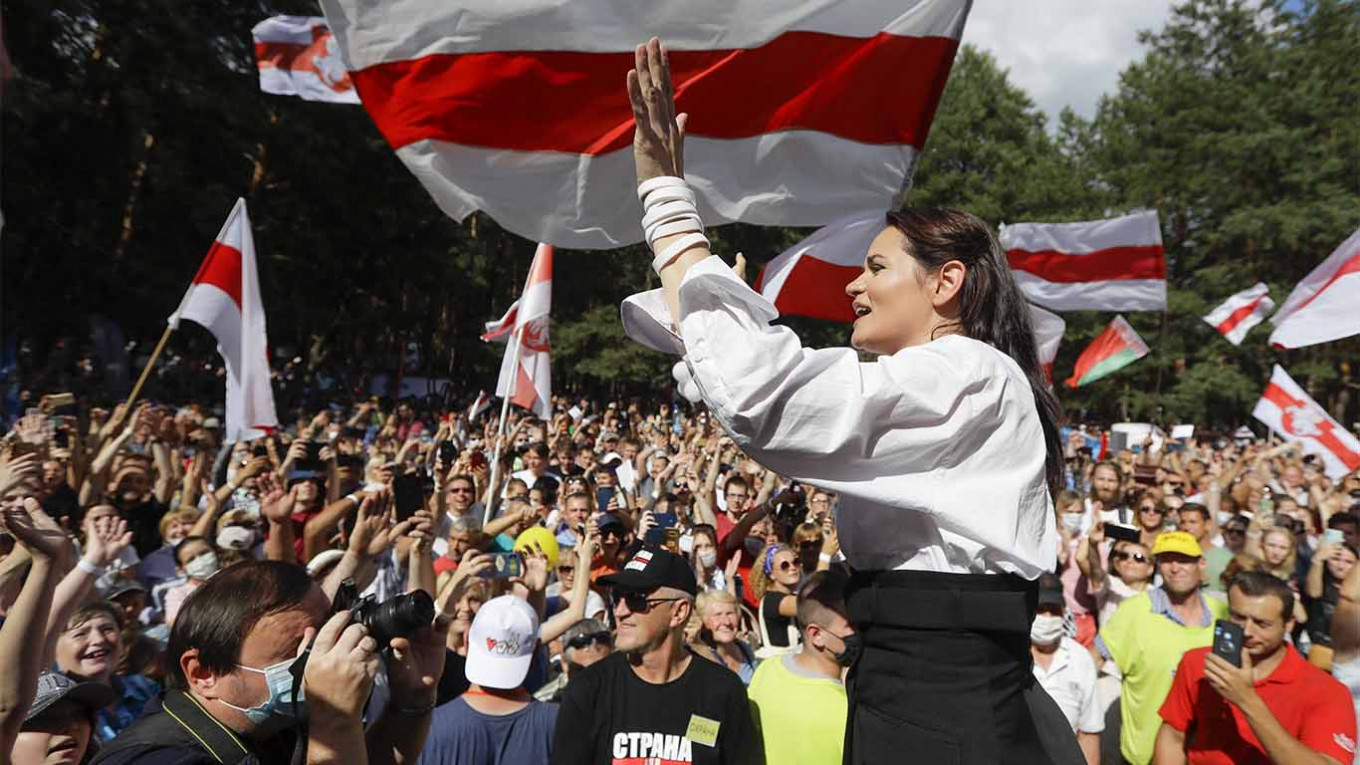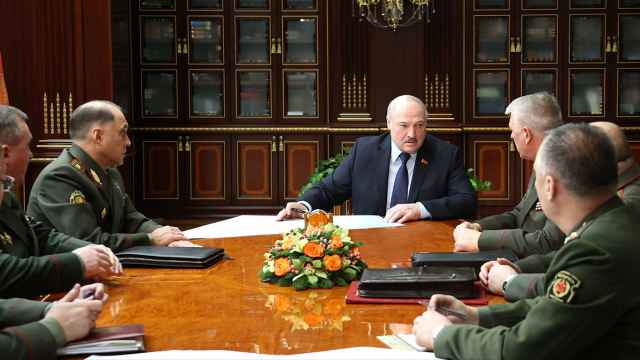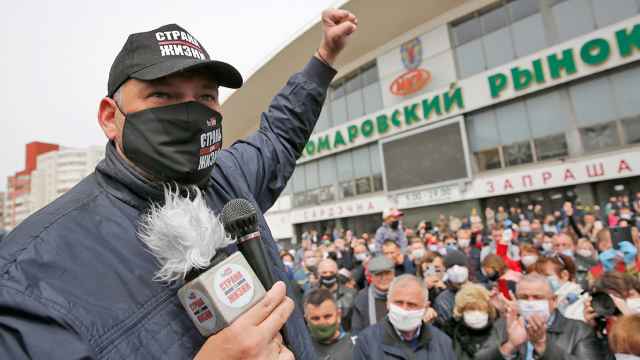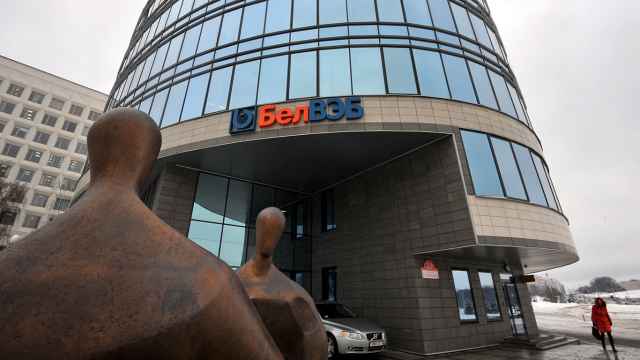Belarussians will be heading to the polls this Sunday and will see the same name on the ballot for the sixth consecutive time.
All original challengers to the incumbent — including some who were recently part of the Belarussian elite — have been driven into exile or imprisoned. President Lukashenko even “uncovered” a last-second plot to foment unrest by Russian mercenaries, albeit a plot similar to the one he “uncovered” in 2017.
The results of the election are not in doubt in an electoral system where the president openly admits to falsifying the results, albeit not in the expected direction. Yet, this election is proving to be the biggest challenge to Lukashenko’s 26-year rule. With tens of thousands taking part in opposition rallies across the country, might this election signal the end to Lukashenko’s rule? In short, no, at least not for now.
With the exception of some protests in the wake of a “parasite tax” on the unemployed, Lukashenko has not faced serious opposition in over a decade, a fact that has not prevented some analysts from regularly predicting his demise.
By their account, however, it is not the Belarussian people but Russia’s President Putin who’d play the main role. Major spats between Moscow and Minsk — and there are many — are followed by rampant speculation of a Russian invasion or outright annexation of Belarus.
In 2015, RISI — a Russian think tank that is taken more seriously in the West than in Russia — predicted a Russian invasion of Belarus due to the latter’s insufficient support for Russia’s adventures in Ukraine. The 2017 Zapad military exercises were going to be the pretext for a Russian invasion. As was Belarus’s unwillingness to allow a Russian military base on its soil. Putin was accused of wanting to annex Belarus to stay in power. Or because of Lukashenko’s insufficient loyalty. Or simply because it’s August.
The popular dimension is consistently missing from these stories. And there is no revolution without the people.
Just how unpopular is Lukashenko? Reliable numbers are hard to come by, but a survey taken by the Institute of Sociology of the Belarussian National Academy of Sciences — which relies on state support — placed confidence in Lukashenko among residents of Minsk at 24%. That number is likely lower today in the wake of a disastrous coronavirus response and massive opposition rallies. In fact, Lukashenko seems unable to maintain the support of his own youngest son, who he once groomed for power.
Those low approval numbers are very unlikely to be reflected in Sunday’s election results. Lukashenko’s main challengers in the past three presidential elections failed to reach 7% of the vote, while Lukashenko himself hasn’t dipped below 80% since 2001. Despite sizeable opposition to Lukashenko in the capital Minsk, he still managed to “obtain” 74% of the vote there in the most recent presidential election. The real question then is what happens after the election.
First, the election results will themselves be informative. If Lukashenko insists on “winning” 80% of the vote, many of the people attending the opposition rallies will likely head to the streets angry at the scale of the electoral fraud. Meanwhile, failing to “obtain” 70% nationally and 50% in Minsk would embolden the opposition and potentially even lead to some defections from the elite.
Second, the reaction to the protests will decide Lukashenko’s fate more so than the election or resulting protests. A weak response might very well lead to a Maidan-type situation. An Andijan-type violent response would likely succeed but at the cost of cutting off ties with the West for many years to come. A Putin-type response of handing out severe punishments to protest leaders and lenient punishments to other protesters is most likely to maintain the status quo.
Third, Lukashenko’s legitimacy is based primarily on his ability to maintain economic and social stability in Belarus.
That part of the social contract has been damaged through his attacks on the unemployed and non-response to the coronavirus crisis. On the one hand, this damage will be difficult to repair, especially given Lukashenko’s stubborn personality. When you add the structural weaknesses in the Belarusian economy and constant disputes with Russia to the equation, the situation is more likely to get worse than better. On the other hand, the economy is not collapsing and elite support for Lukashenko is showing only slight cracks.
Fourth, removing Lukashenko through protests would require a strong civil society. Lukashenko has been successful in stifling civil society growth.
According to USAID, the state of Belarussian civil society is the fourth-worst in the post-Soviet world and eastern Europe, behind only Turkmenistan, Azerbaijan and Uzbekistan, none of which are likely to see a color revolution in the near future. Yet, according to the most recent report, Belarussian civil society has gotten stronger and has seen increased public support in the past 5 years.
That likely played a significant role in the size of the current opposition rallies relative to previous ones. The experience and networks created during these rallies will be vital in consolidating anti-Lukashenko sentiment down the line.
Lastly, structural factors generally favor Lukashenko. Those include Lukashenko’s control over most of the economy, weak opposition parties, low likelihood of outside support for regime change, and a loyal security apparatus that has shown a willingness to repress the population.
The situation is not hopeless for the opposition, however. Belarus lacks a real ruling party in the vein of United Russia or a coherent ideology. It lacks the kind of natural resources that might be used to maintain the loyalty of the elite in the event of growing economic or social problems. And it’s failing to provide sufficient economic growth for maintaining a pliant middle class.
When these factors are examined in their totality, it seems unlikely that Belarus is on the verge of a color revolution. Nonetheless, Belarus is closer to such a revolution than any point in Lukashenko’s 26-year reign. Tsikhanouskaya — the current standard-bearer of the opposition — is saying and doing all the right things, even though Lukashenko does not consider her a worthwhile opponent.
Lukashenko is slowly but surely losing public and elite support. Absent large-scale repression, he will find it harder and harder to stay in power as his structural advantages grow weaker and structural flaws accumulate. A coronavirus-scale failure a few years down the line might be his last.
A Message from The Moscow Times:
Dear readers,
We are facing unprecedented challenges. Russia's Prosecutor General's Office has designated The Moscow Times as an "undesirable" organization, criminalizing our work and putting our staff at risk of prosecution. This follows our earlier unjust labeling as a "foreign agent."
These actions are direct attempts to silence independent journalism in Russia. The authorities claim our work "discredits the decisions of the Russian leadership." We see things differently: we strive to provide accurate, unbiased reporting on Russia.
We, the journalists of The Moscow Times, refuse to be silenced. But to continue our work, we need your help.
Your support, no matter how small, makes a world of difference. If you can, please support us monthly starting from just $2. It's quick to set up, and every contribution makes a significant impact.
By supporting The Moscow Times, you're defending open, independent journalism in the face of repression. Thank you for standing with us.
Remind me later.








